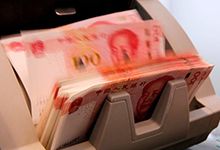Highly indebted sovereigns with China as a significant creditor have little idea how to approach the Asian superpower about restructuring those debts.
Advisers specialising in sovereign debt workouts told IFR that the question has been skirted in restructurings where China was owed small amounts of debt and therefore there is little real precedent about how to deal with situations where China is a significant creditor.
Major Chinese involvement is therefore likely to delay any workout deals with bondholders and other private sector lenders.
Both sovereigns that started refinancing talks with bondholders during the last quarter of 2017, the Republic of Congo and Venezuela, owe sums to China that dwarf the total due to other lenders.
“Everyone including the IMF is grappling with how to deal with China regarding Venezuela. They are a big creditor but there is a lack of transparency about their exact position,” said one sovereign restructuring adviser.
Before China became a major lender to emerging market countries, bilateral lenders used to discuss how to restructure their loans to sovereigns at the Paris Club. The IMF was enlisted as well to monitor the conditions under which debt relief was granted.
However, China is not a member of the Paris Club and the country’s various state-owned lenders do not publish the rates and terms of their loans. In addition the IMF has not carried out a full report on Venezuela’s finances since 2004, making it hard to assess the country’s predicament.
In the last two major sovereign restructurings, Greece and Ukraine, Chinese debts were treated differently. China held Greek government bonds that were included in the March 2012 exchange offer that targeted €200bn of debt. But in Ukraine, its US$640m bilateral loan was left untouched.
Nonetheless, when the reckoning comes in Venezuela, China is unlikely to escape. Instead it will be expected to contribute to solving what is developing into a major humanitarian crisis.
“It is highly likely that in circumstances where Chinese claims are a significant part of total external debt, bondholders and perhaps other creditors will insist that China be a part of the solution,” said Mark Walker, who advised Greece on its restructuring when at Lazard.
“How this will play out in practice and the dynamics of negotiations remain to be seen,” said Walker, now a managing director at Millstein & Co.
CHANGING TERMS
In smaller restructurings, proactive debtors have found the Chinese willing to change the terms of their loans, generously extending maturities for example. Even Venezuela has been granted relief, with reports saying it has been allowed to provide oil in lieu of principal on some of its loans.
But it is unclear how China would react if a country got into more severe difficulties and found itself unable or unwilling to pay and simply defaulted.
“China is accommodating and willing to offer new terms such as longer maturities but if a debtor chooses not to pay, then it’s unclear how China will react,” said a second sovereign restructuring adviser.
With the humanitarian crisis deepening in Venezuela, a hard default is seen as increasingly likely. That could usher in a new administration keener on renegotiating all debts struck by previous governments, as well as any agreements to sell oil upfront.
“Some could argue that this [oil sales] is akin to selling the next government’s future revenue source so when a new government comes to power those agreements could be ripped up. It’s hard to know what China’s response would be,” said the second adviser.
China might be able to argue that, as it provided credit to the country after it had lost market access and had already renegotiated the terms of some of its debt (accepting oil instead of cash), it should legally be regarded as senior and get better treatment than other creditors.
China showed it could take an assertive approach to debtors in December when it took possession of Hambantota port in Sri Lanka after the country was unable to pay debts secured against the asset.
TRANSPARENCY REQUIRED
Any negotiations will require China to be more transparent about its debt holdings. Some restructuring specialists have suggested it should perhaps set up its own Asian version of a Paris Club to coordinate the negotiations of its various institutions, and those of its continental allies.
“Reference to Chinese claims is itself an oversimplification. Chinese creditors may include China Development Bank, China Exim Bank, one or more of their SOEs, and investment vehicles such as the Silk Road Fund. They may take differing approaches to a proposed restructuring,” said Walker.
Ultimately China’s attitude will depend on its particular policy goals towards the debtor. “All indications so far are that China is a benign creditor [of Venezuela] and is happy so long as it continues to receive oil at a reasonable price,” said one sovereign debt lawyer.
